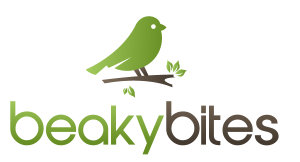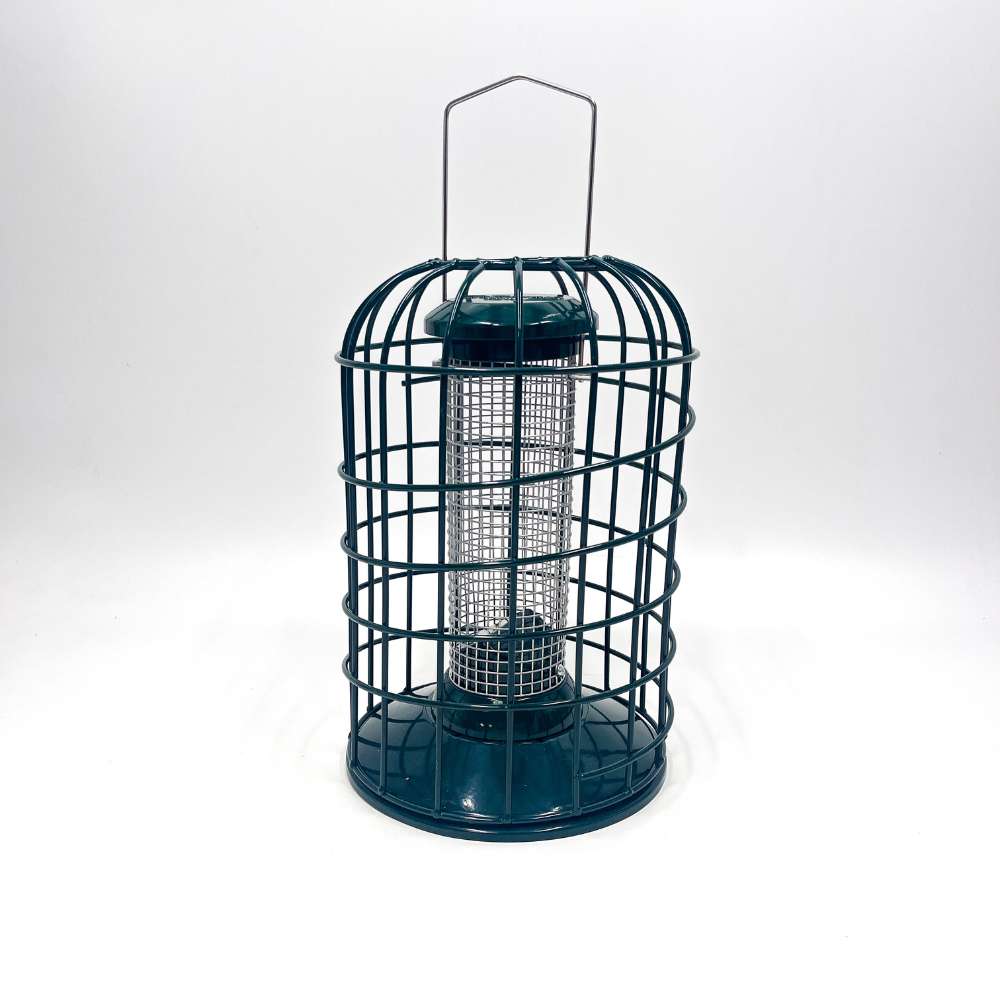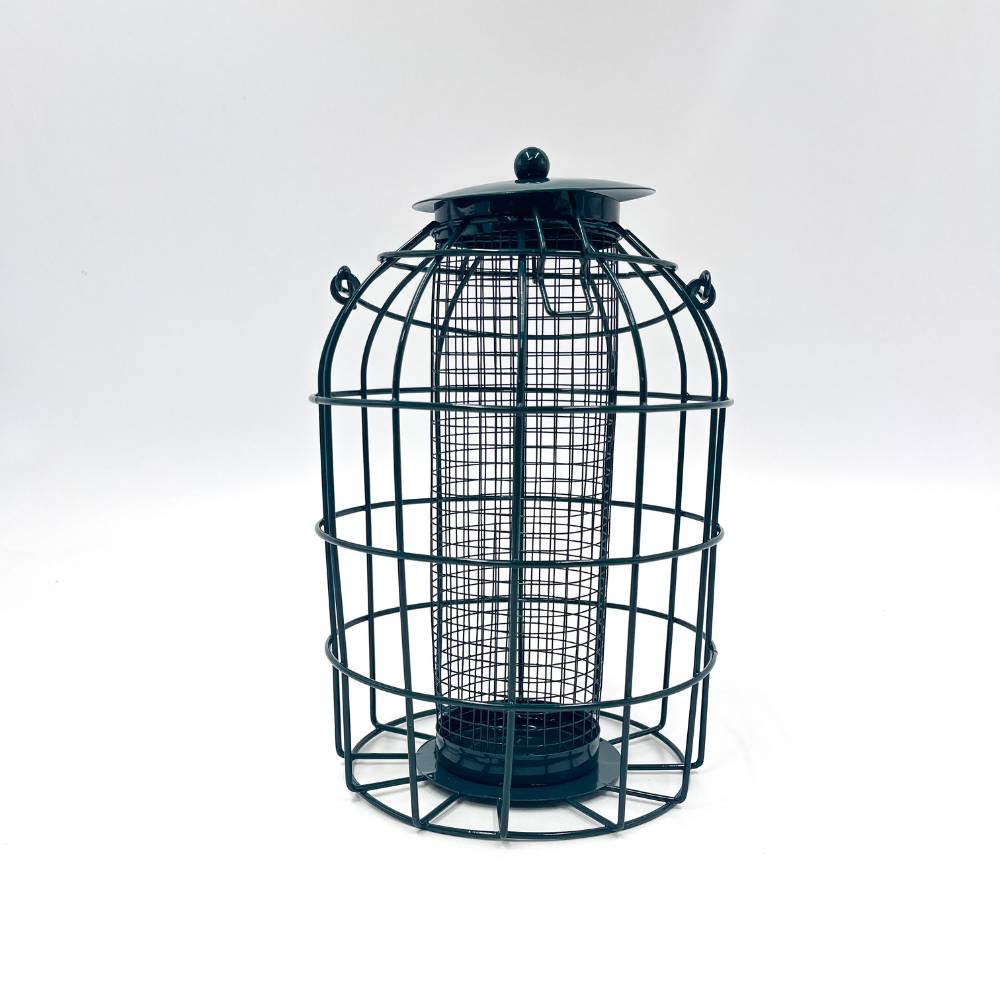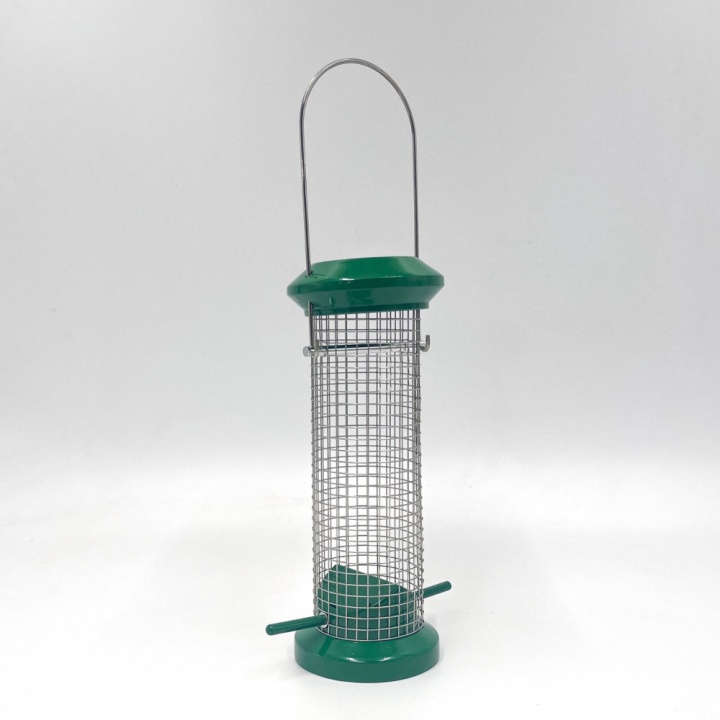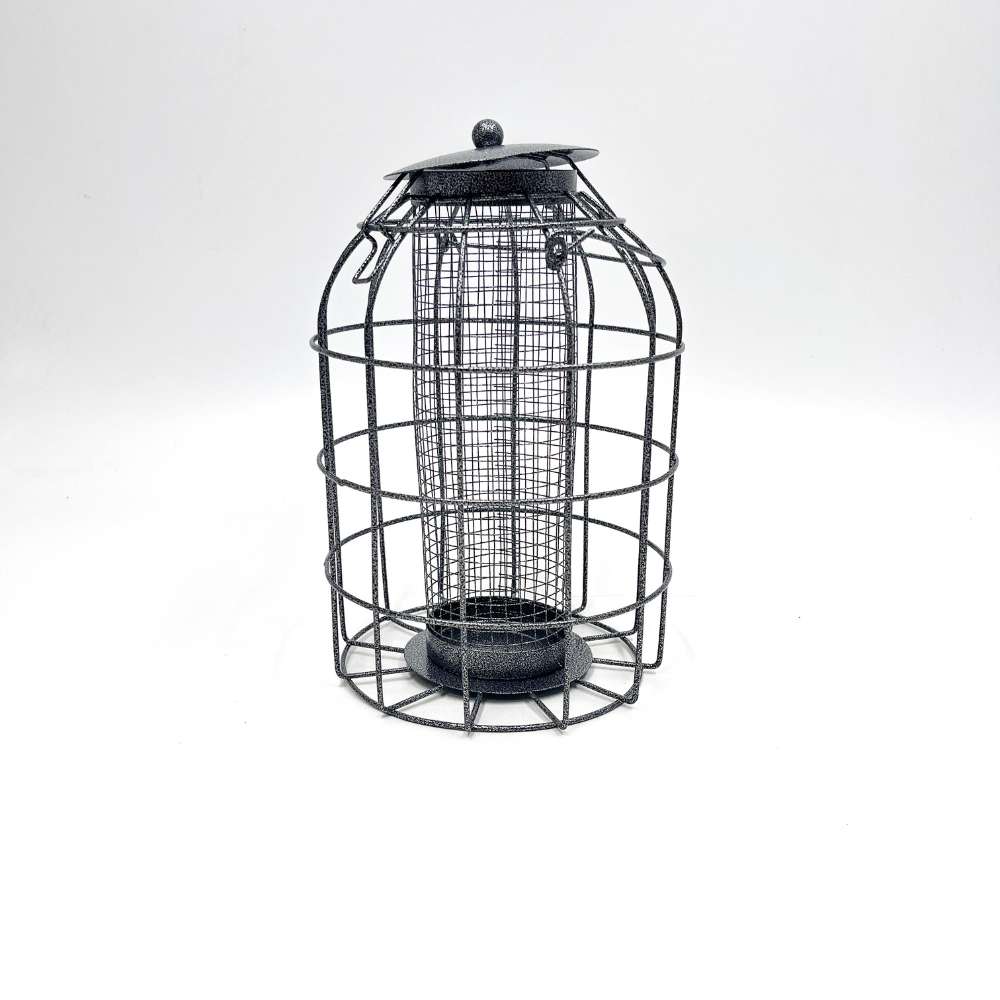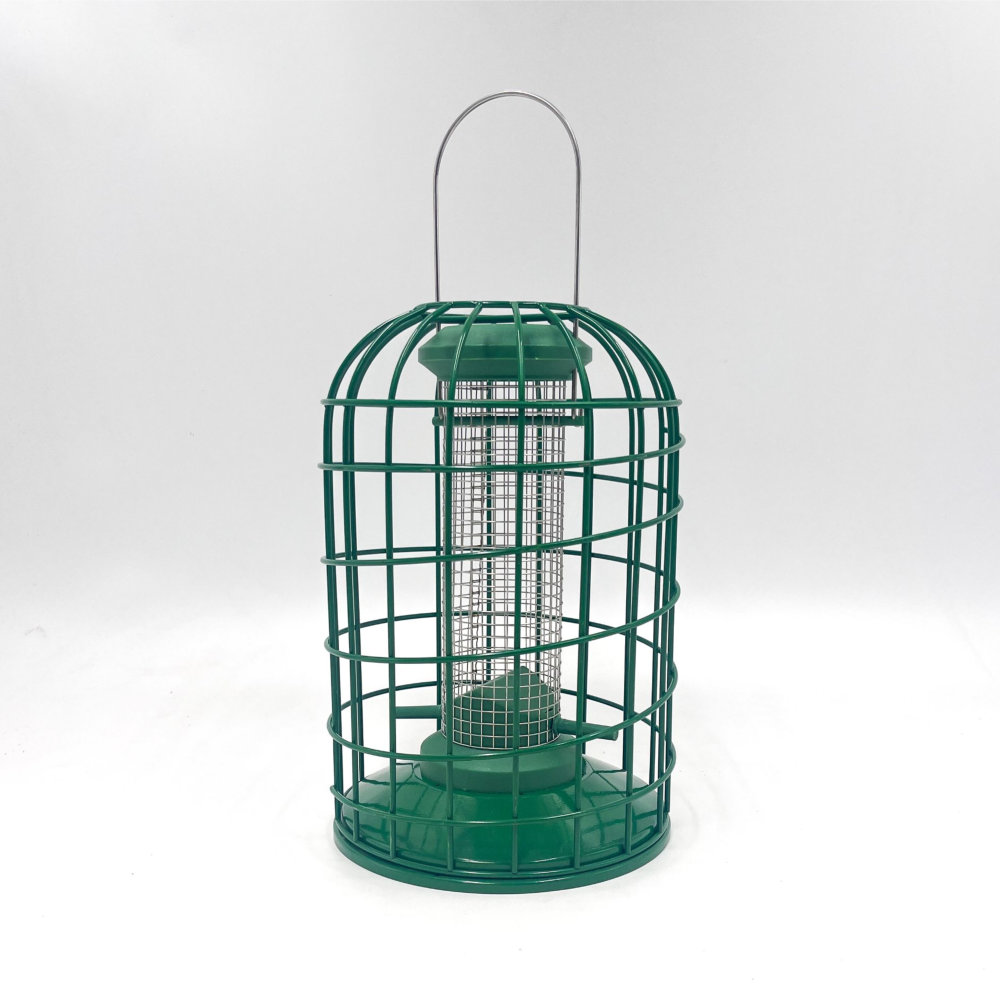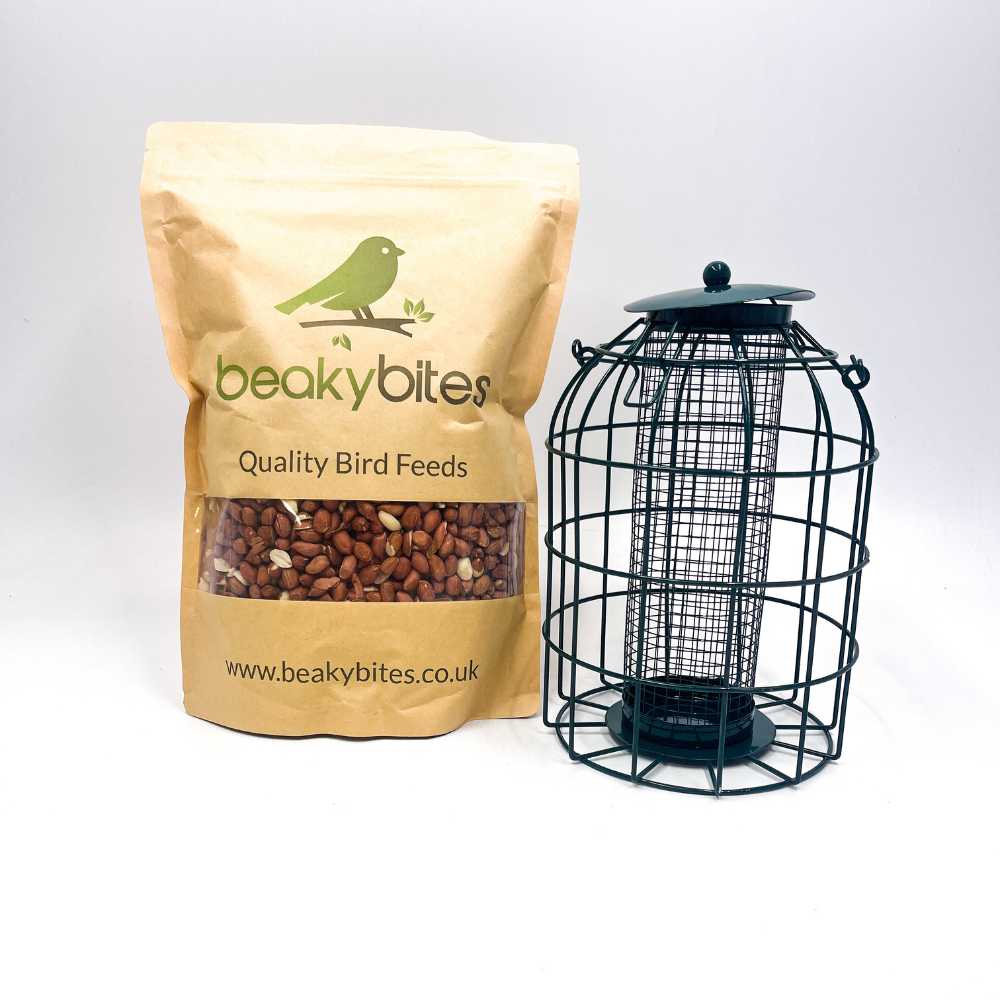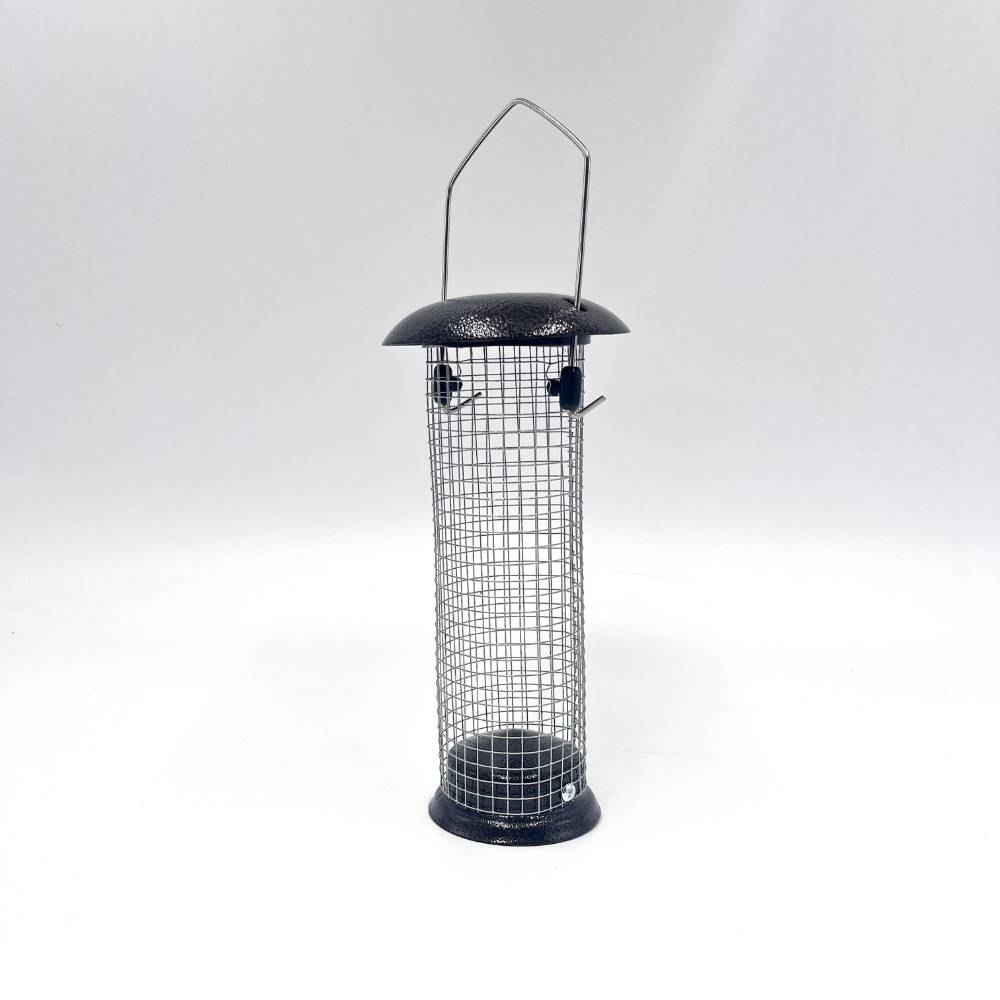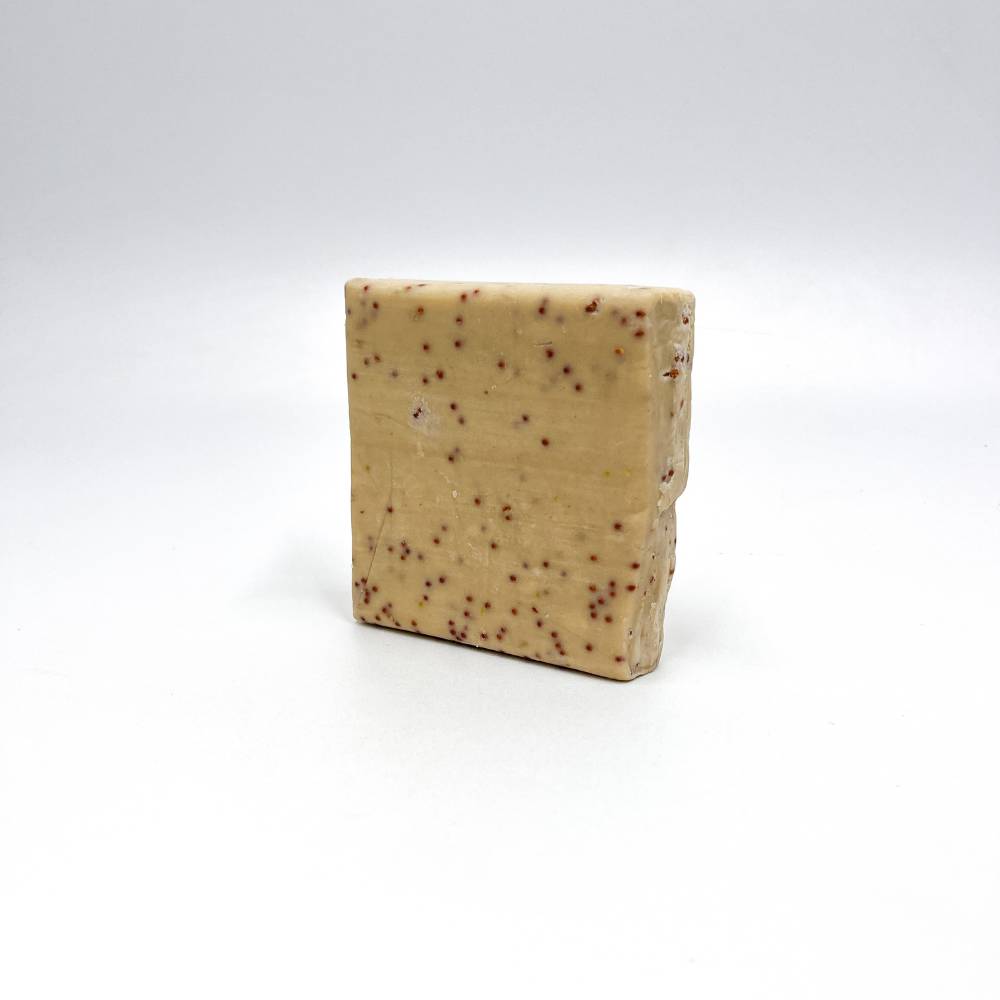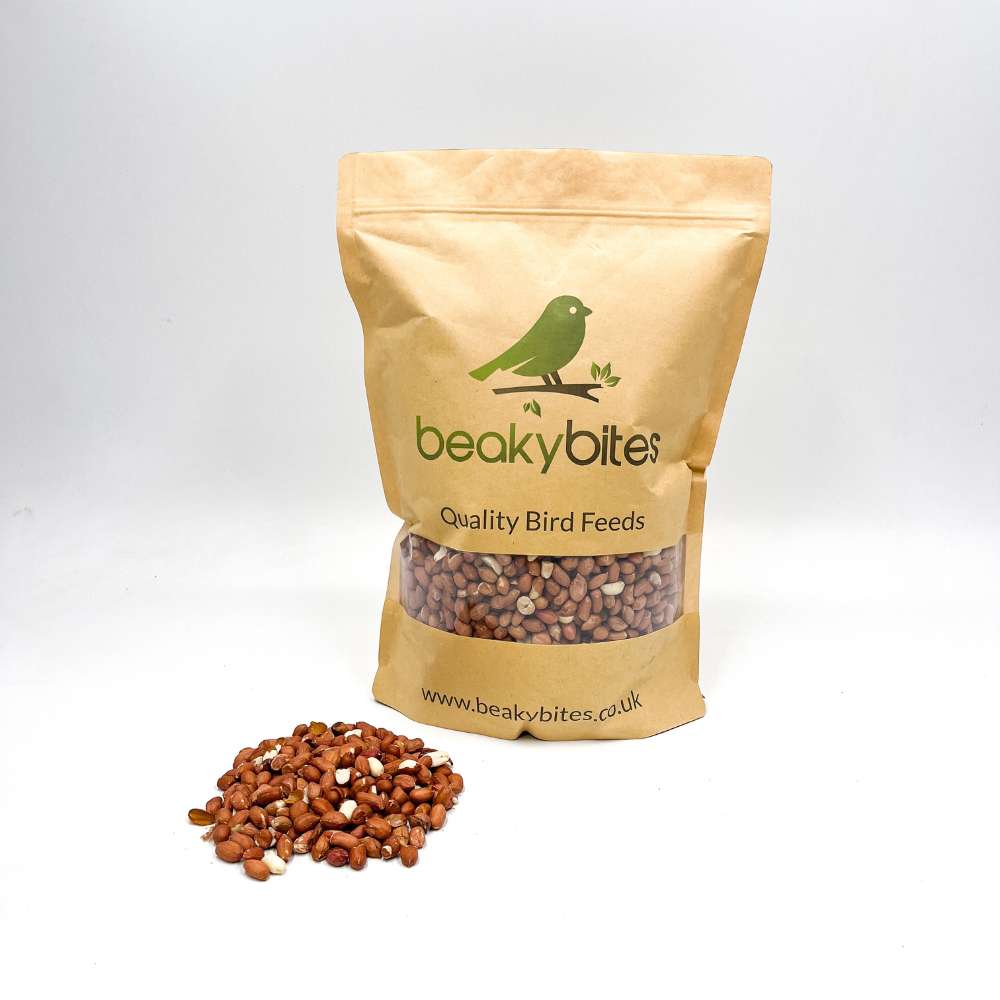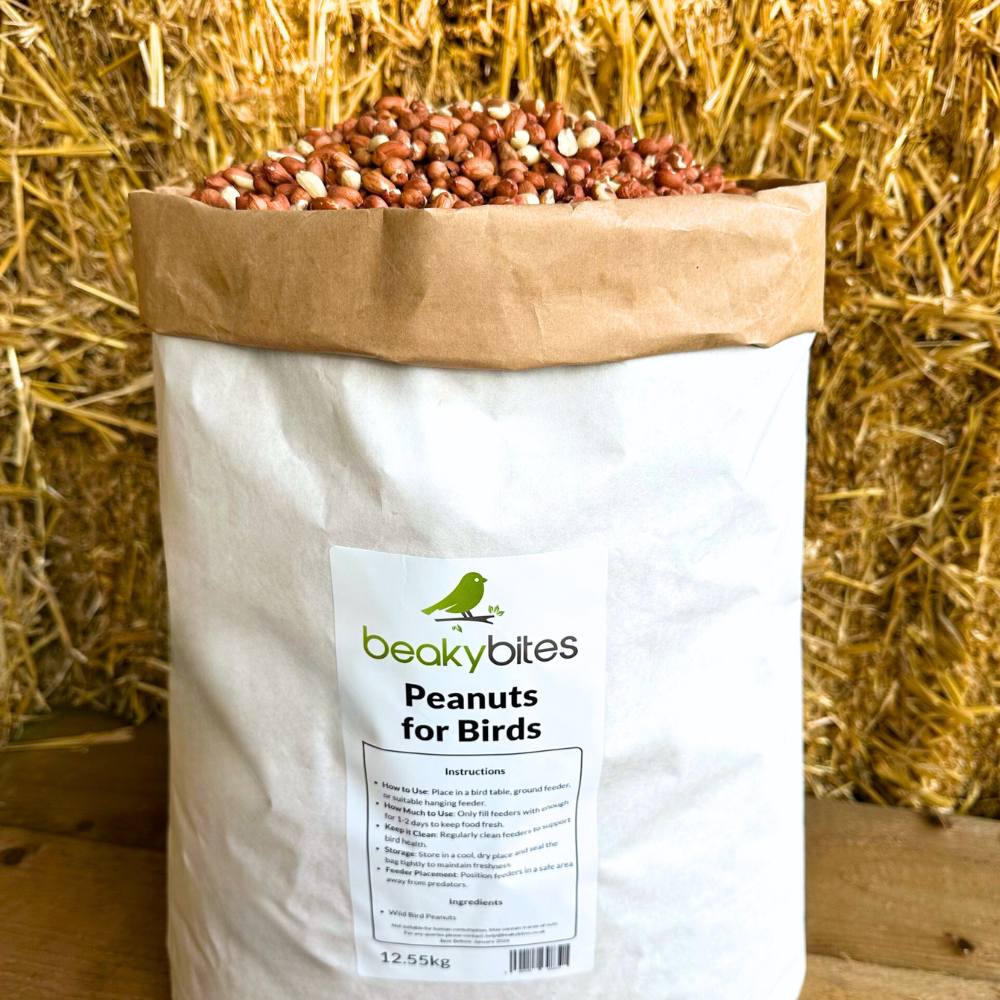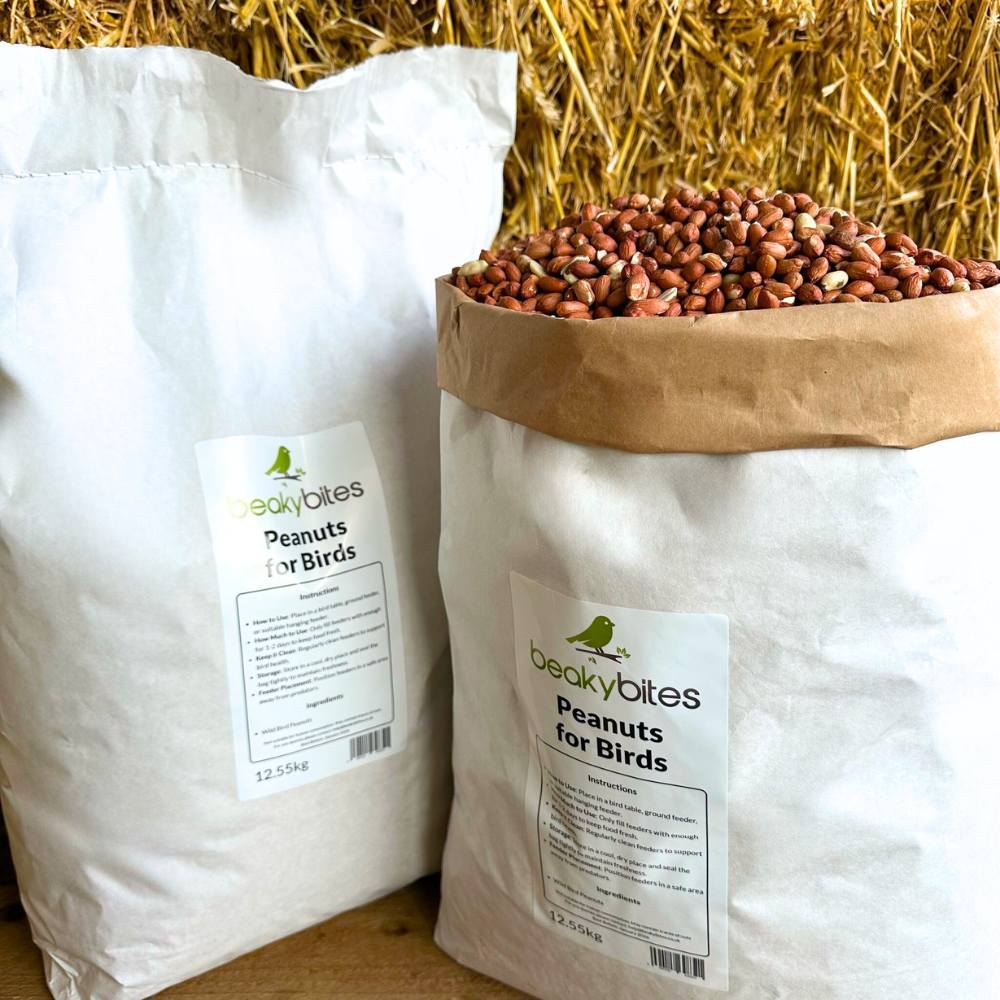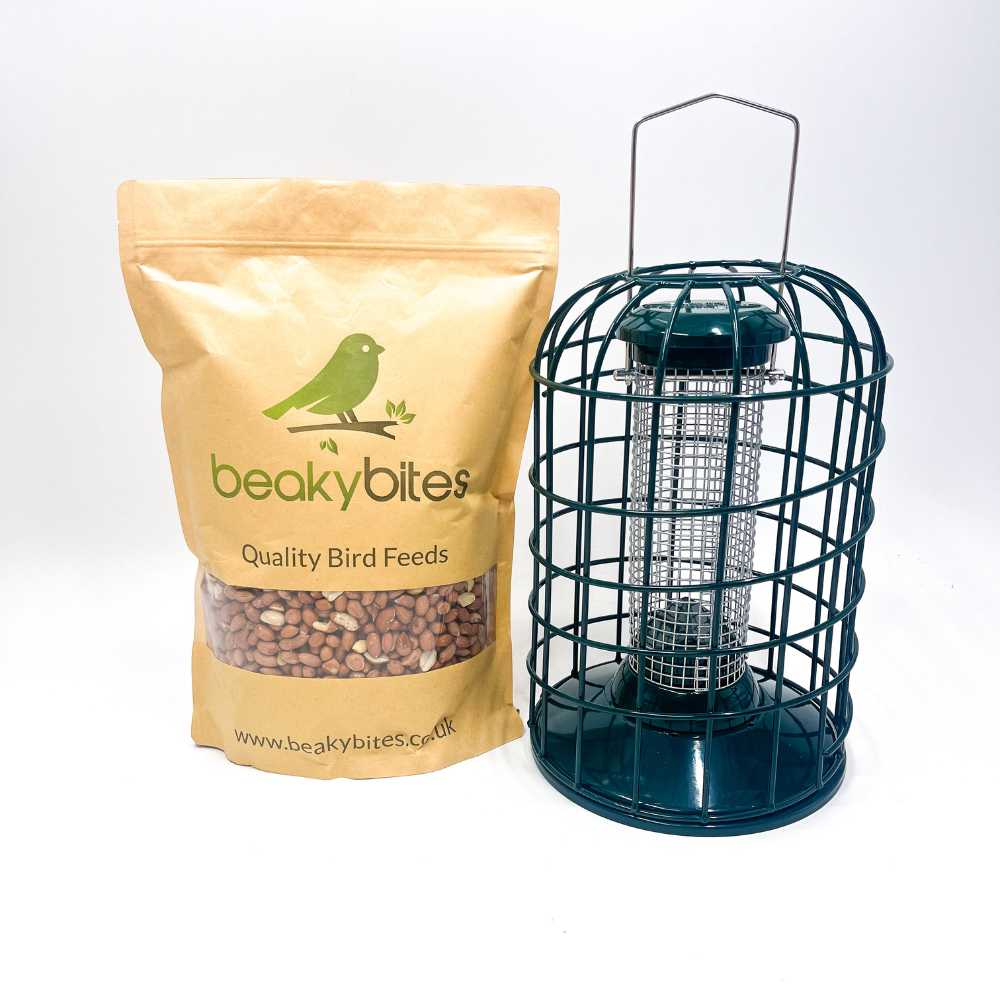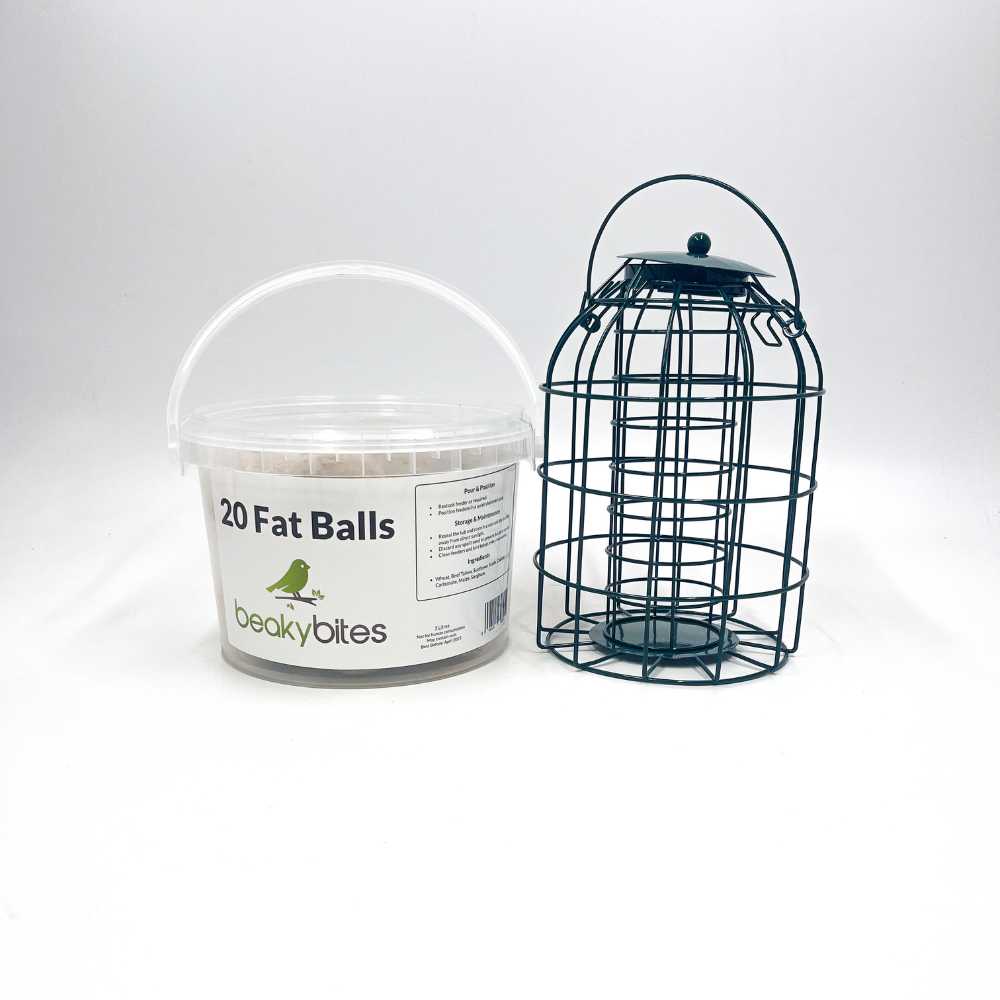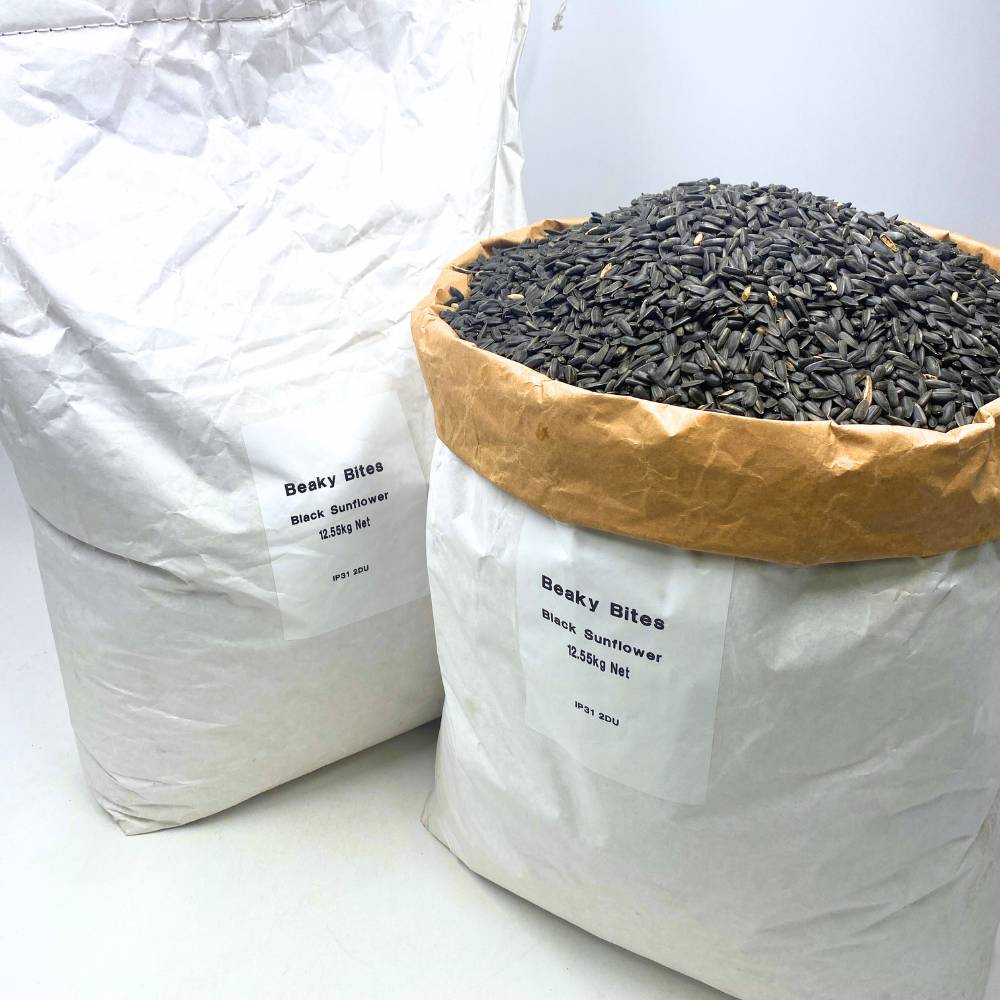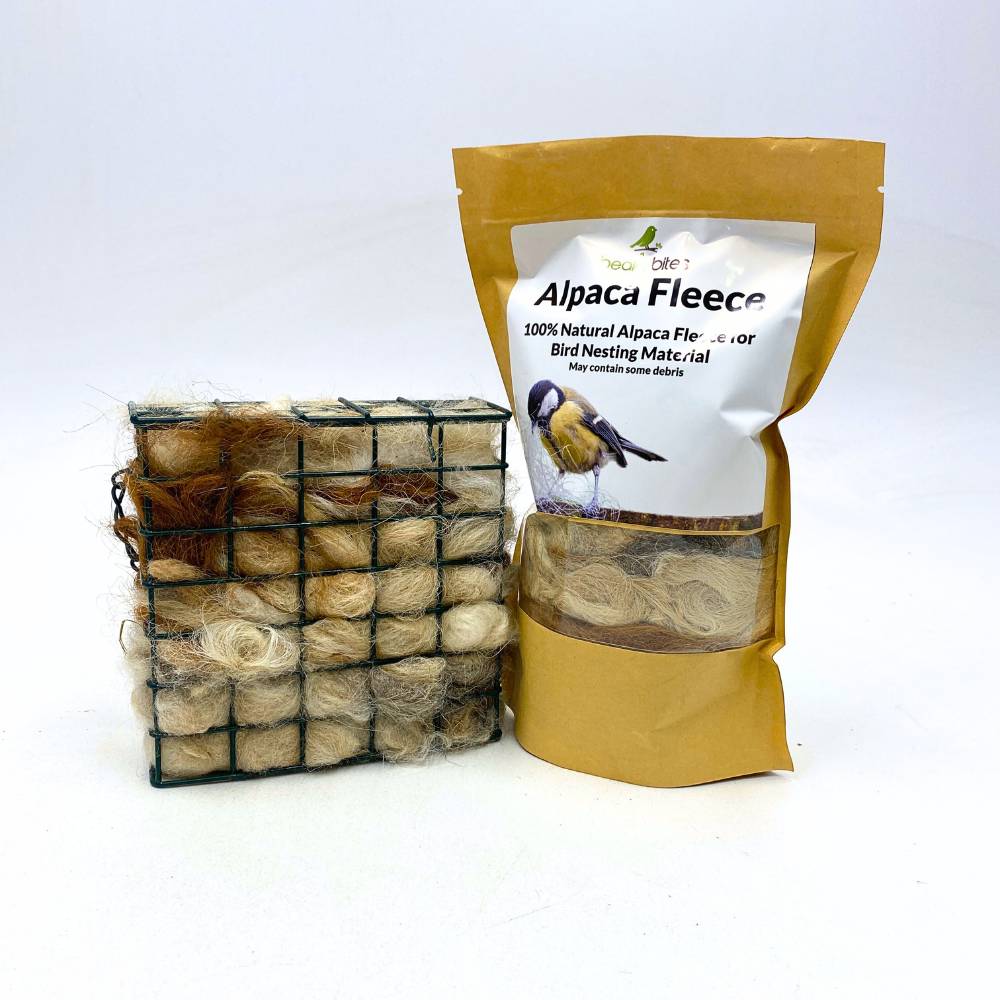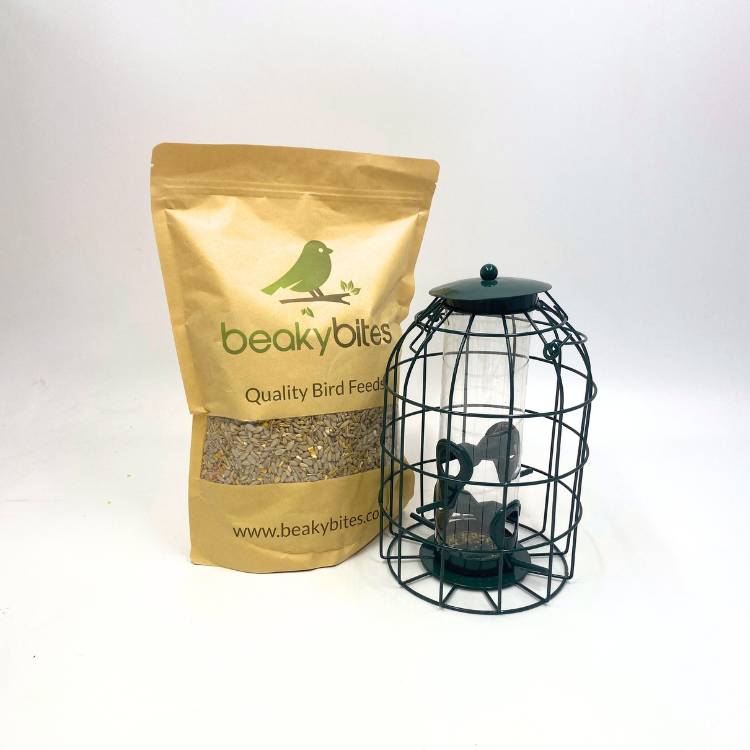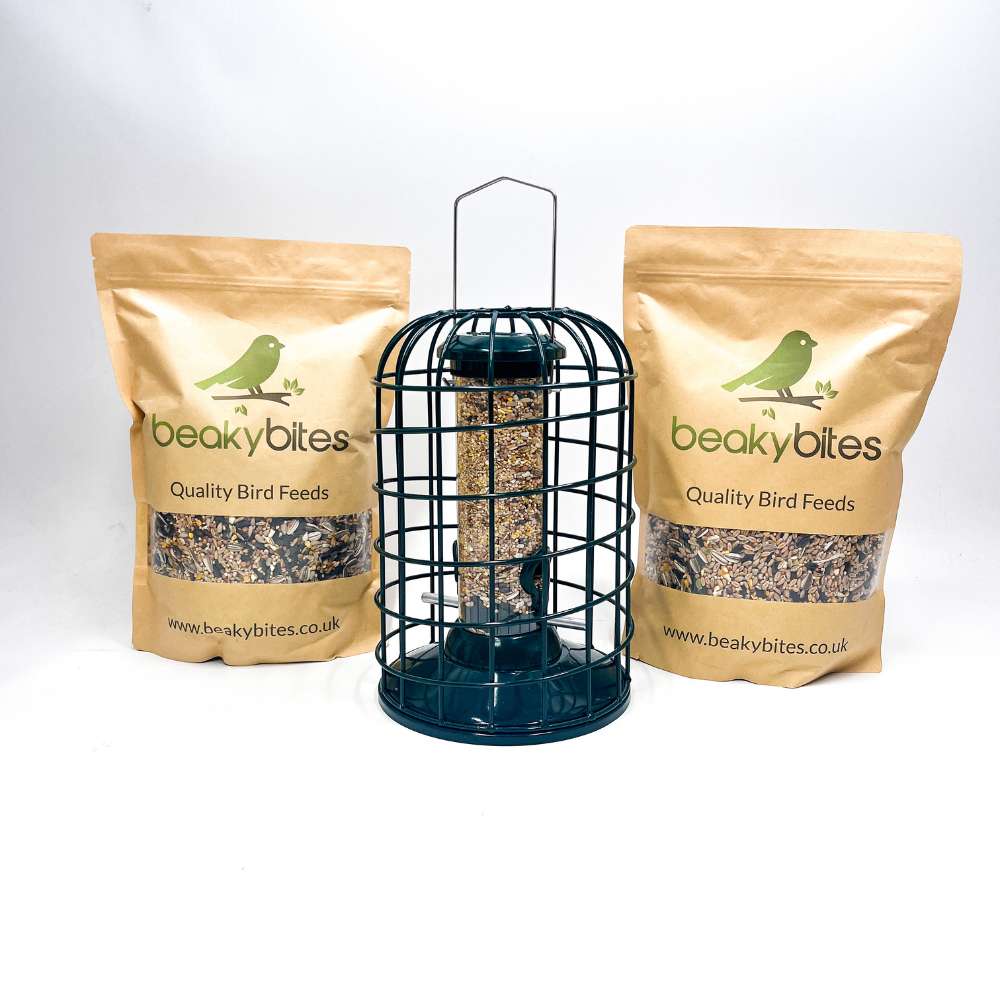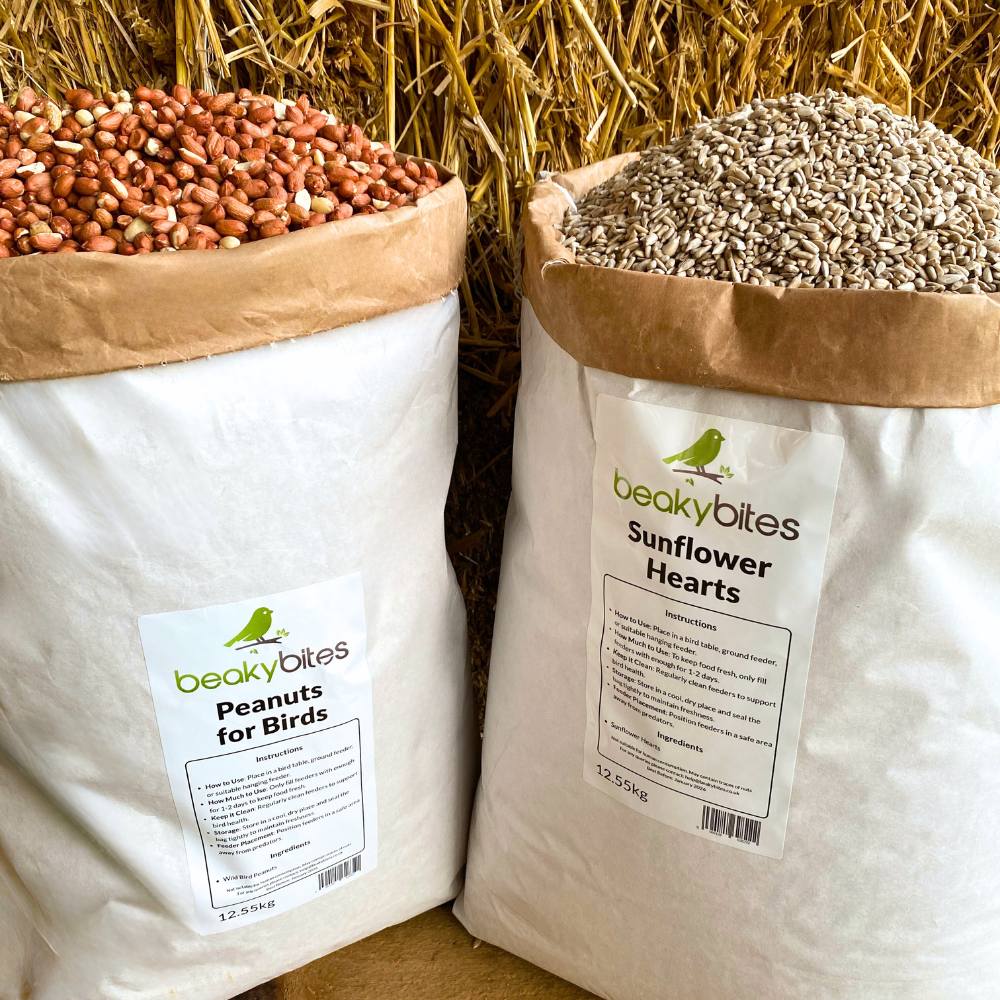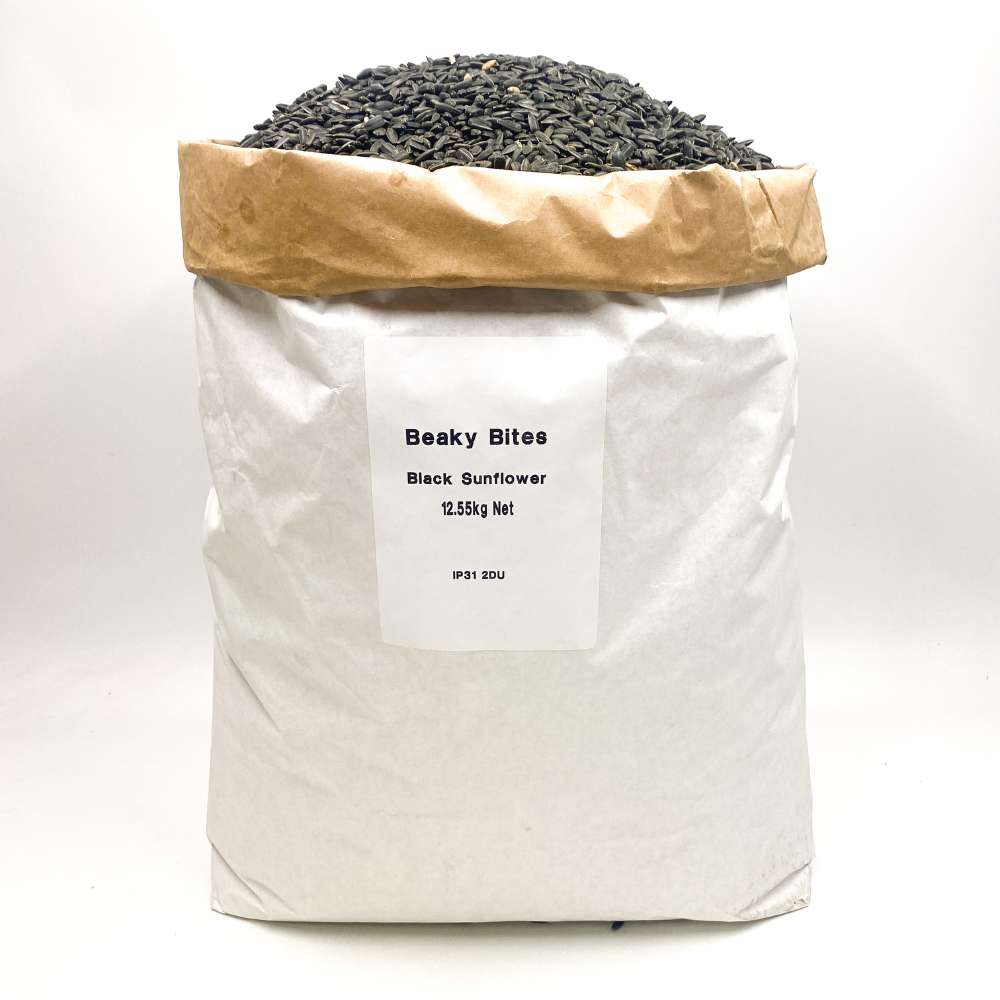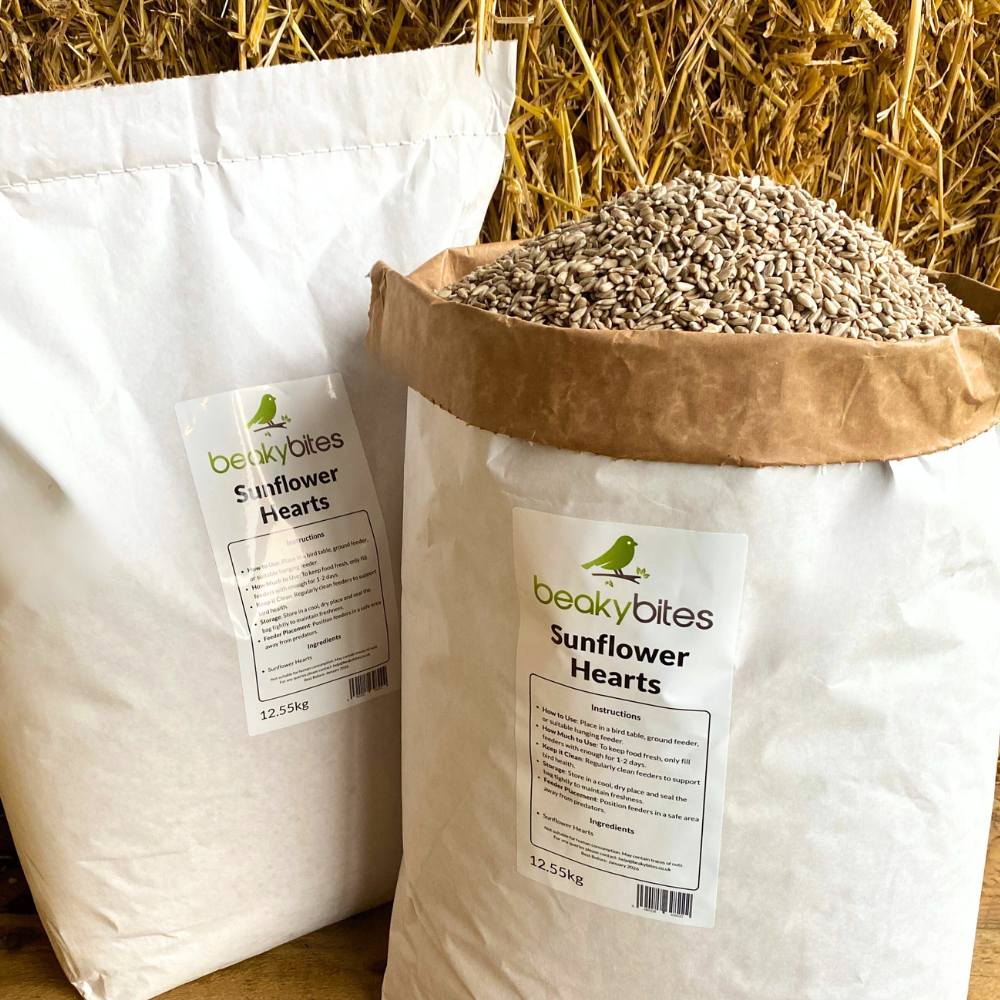Feeding Peanuts to Birds, Top 10 Tips and Advice
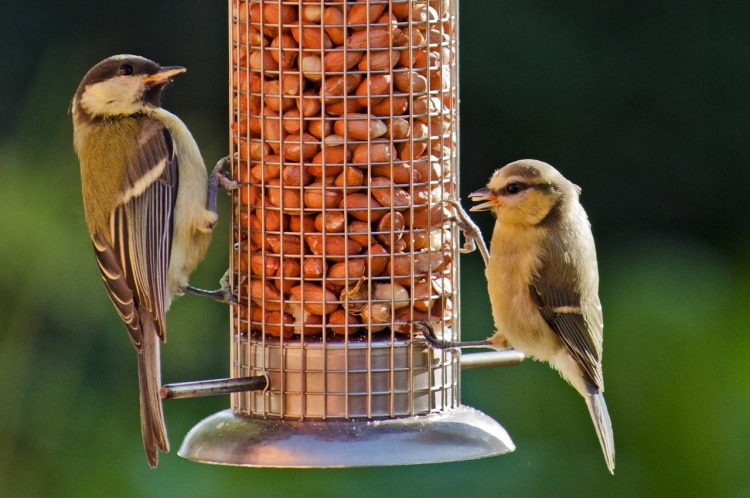
Bird Peanuts: The Delicious Treat Wild Birds Can't Resist
Feeding peanuts to birds is a great way to give them high energy food. But what are the best practices to keep them safe? Here you will find tips on the nutritional benefits of peanuts, different ways to feed and how to attract different bird species to your garden.
What We Will Cover
- Why are they good and who eats them?
- Different ways and best feeders to feed peanuts to birds
- Keeping peanuts Safe and what is aflatoxin?
- Seasonal changes to feeding birds
- Nut allergies
- Keeping feeders clean
- Preventing Squirrels
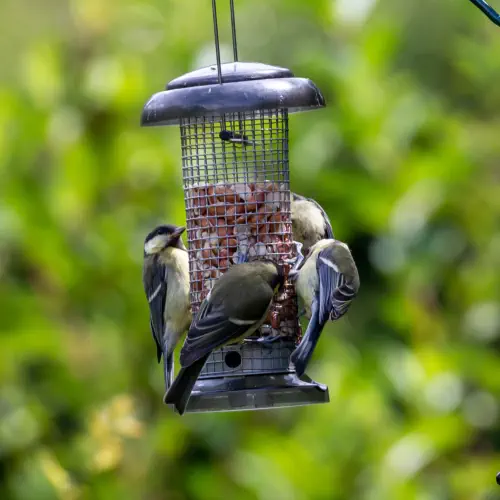
Why Peanuts Are Good for Garden Birds
Peanuts are a nutritional powerhouse for birds, high fat and full of calcium and phosphorus. These are essential for birds health and development so peanuts are a good food. Whether you are feeding wild birds or garden birds, add peanuts to their diet and they will have the energy they need, especially in winter.
In winter natural food sources can be scarce and birds need extra calories to keep warm. Peanuts with high fat content are an important source of energy during these times. So they are a reliable food that will support birds through the toughest seasons.
But feeding peanuts to birds isn’t just for winter. Throughout the year peanuts are a high energy food that will help birds during breeding and nesting season. By feeding peanuts regularly you will make sure your feathered friends have the nutrients they need all year round.
Which Birds Eat Peanuts
Many birds eat peanuts, so they are a versatile food for bird feeders. From blue tits and greenfinches to house sparrows and nuthatches, many garden birds love peanuts as part of their diet. If you have ever seen a great spotted woodpecker hammering away at a peanut feeder you will know how entertaining it is.
Larger birds like jays, jackdaws, crows and magpies like whole peanuts in their shells. Smaller birds like robins, dunnocks and wrens prefer crushed or grated peanuts. This way even the smallest birds can enjoy peanuts without struggling to carry or eat them. Using a squirrel proof feeder will help keep those larger birds out if smaller birds are your targeted audience.
Some species like nuthatches and coal tits hide peanuts and store them for later. This is so clever and will have food for when they need it.
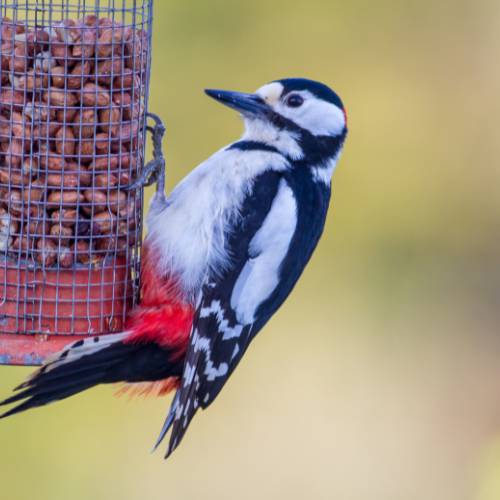
Different Ways to Feed Peanuts to Birds
There are many ways to offer peanuts to birds, to suit different species and habits. Larger birds like jays and woodpeckers like whole peanuts in their shells, smaller birds like chickadees like peanut hearts or chips. By knowing these preferences you can attract more birds to your garden.
One way is to use specialised peanut feeders that will dispense peanuts safely and attractively. Another is to scatter peanuts on the ground for ground feeding birds and to mix peanuts into seed mixes for variety and convenience.
Or try smearing peanut butter on tree bark or using it in suet feeders for a high energy treat the birds will love. Tray and dish feeders are also great for serving whole peanuts and splits, to attract different bird species. Try different methods and see what works for the birds in your area and enjoy the birds flocking to your feeders.
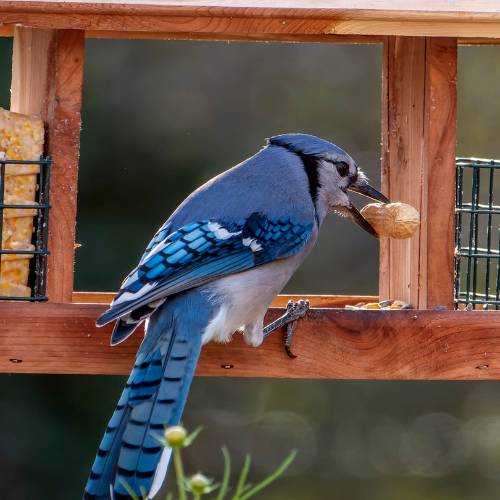
Best Peanut Feeder
Choosing the right bird feeder for peanuts is important so your feathered friends can get to the food safely and easily. Platform feeders and feeding tables are great as they can accommodate different bird species and you can attract both big and small birds.
Wire mesh feeders are another good option as birds can peck at the peanuts over time and not take the whole nut at once. These feeders are great for keeping the feeding area tidy and making sure more birds get to enjoy peanuts.
If you want to offer peanuts specifically, peanut feeders will dispense peanuts safely and prevent whole nuts from being taken. Rigid mesh feeders are recommended for spring and summer as they will give birds safe access to the food and prevent spoilage.
By choosing the best bird feeder for peanuts you can create a bird friendly environment for many bird species.
Peanut Safety for Birds
Safety first when feeding peanuts to birds. Never offer seasoned, salted or sweetened peanuts as they can be toxic to birds. Always go for plain unsalted peanuts for the health and well being of your feathered visitors.
Peanuts can go bad in humid conditions so offer a few at a time to prevent them from going off. Check your peanut supply regularly and replace any spoiled nuts to keep the bird food fresh and safe.
When using peanut butter make sure it is free from additives like salt or sugar and avoid rancid peanut butter which can be toxic to birds. Both smooth and crunchy peanut butter can be fed to birds as long as it’s free from additives.
By following these rules you can safely feed peanuts to birds and enjoy them in your garden.
What is Aflatoxin?
Aflatoxin is a poisonous carcinogen which is produced by a certain mould and is a risk to both humans and birds. It can have effects on humans, but for small garden birds, it can be life threatening.
To minimise the risk of aflatoxin contamination growers and sellers of bird peanuts must ensure at each step of production, carful guidelines are kept to ensure any mould growth is minimal. Therefore when sourcing your peanuts ensure they are from a reputable supplier who test and guarantee their products are safe for bird consumption. These precautions will protect your feathered friends from this toxin and provide a safe and healthy food source.
Once you have the peanuts, keeping them sealed up in a bag whilst storing and only putting out what the birds eat over a couple of days will minimise the risk of aflatoxin from developing. See below for further cleaning tips.
Feeding Peanuts by Season
Seasonal changes can have an affect on feeding peanuts to birds. Firstly colder winter months, increase the amount of peanuts you are feeding the birds. These high protein snacks are great for birds to build up body fat, supporting them through this particularly tough period of the year.
Secondly consider the size of the nuts you are offering. In spring and summer try using a split peanut mix or use a specialised peanut feeder, so that birds are not taking large peanut chunks, risking choking of young fledglings. Still over peanuts at this time however as they are an ideal food supple for support growth and help out those tired bird parents feeding up to 6 fledglings at once.
Being aware of the seasonal changes and the needs of birds throughout the year will give you a consistent and valuable food source for their health and wellbeing.
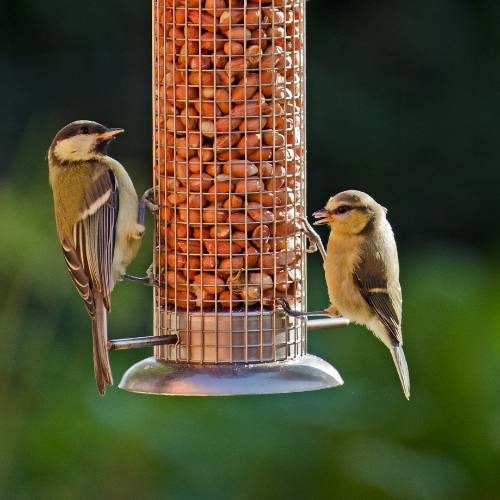
Got a Peanut allergy! What’s the next best thing
If you have a peanut allergy or prefer to avoid peanuts there are some great alternatives that will attract and nourish birds. Sunflower hearts are highly nutritious and will attract many bird species, a great substitute for peanuts. They are rich in fats and will give birds the energy they need.
Dried mealworms are another great alternative especially in breeding season when birds need high protein food sources of a growing family. These mealworms are not only nutritious but also mimic the natural diet of many bird species. By offering these alternatives you can support your garden birds without the risk of peanuts to you.
Cleaning Bird Feeders
It’s important to keep bird feeders clean to prevent the spread of diseases among birds. Unclean feeders can harbour bacteria and fungi which can cause illnesses. To keep your bird feeders clean, wash and disinfect them at least once every two weeks especially during peak feeding times.
Proper cleaning involves soaking feeders in soapy water, scrubbing them thoroughly, rinsing well and letting them dry completely before refilling. If you see a sick bird at your feeder stop feeding, clean the feeders thoroughly and monitor for any further signs of illness.
Keeping your bird feeders clean will give your feathered friends a healthy feeding environment.
Preventing Squirrels and Other Pests
Squirrels and other pests can be a problem when feeding birds but there are ways to deter them. Squirrel proof feeders are designed to block access to food for squirrels and larger birds so only smaller birds can eat. A baffler above or below your feeder will also stop squirrels from getting to the feeders by climbing the feeding pole.
Ground guards will keep squirrels away from ground feeders so smaller birds can eat without competition. Using a natural deterrent such as chili powder will put squirrels off your feed, but not affect birds.
You can also set up a dedicated squirrel feeder to redirect squirrels away from bird feeders and keep your feeding area pest free. By doing these you will have a welcoming environment for many bird species and pests at bay.
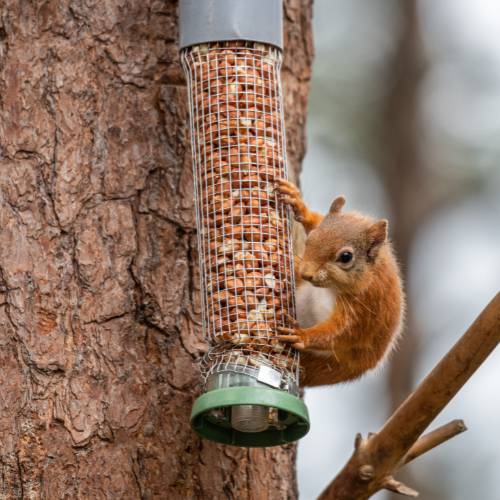
Conclusion
Feeding wild birds peanuts has so many benefits, from providing a high protein, high fat treat to your gar den birds to attracting an array of different bird species. Pick up your next batch of peanuts here and offer them out in a nice clean peanut feeder.
You'll see the affect of a peanut feeder in your garden as you count the birds on your feeder.
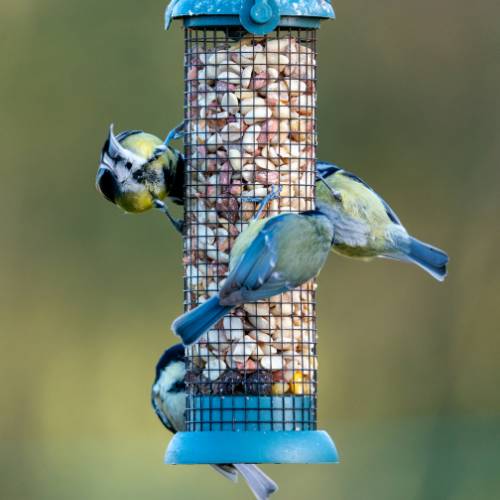
Frequently Asked Questions
Can I feed salted or flavoured peanuts to birds?
- Answer: No, you shouldn’t feed birds salted or flavoured peanuts, they are harmful. Purchase peanuts specifically birds.
How often should I clean my bird feeders?
- Answer: You should clean your bird feeders at least once every two weeks especially during peak feeding times to keep your feathered friends healthy and disease free.
What are some alternatives to peanuts for birds?
- Answer: Sunflower hearts and dried mealworms are great alternatives to peanuts for birds, they provide nutrients and attract many species.
How can I stop squirrels from getting to my bird feeders?
- Answer: Try squirrel proof feeders and baffles. You can also set up a dedicated squirrel feeder to redirect them!
Are peanuts safe for all bird species?
- Answer: Yes, peanuts are generally safe for most bird species, but they should be offered in a way that prevents choking hazards, especially for smaller birds.
